Our plans for Poland on the 9th of December fell through, and so we found ourselves in Hamburg with lots of options but no plans. We did what we could to pursue new seed-related contacts, even recruiting the help of Christina and Juan, but we found last-minute arrangements around the holidays to be somewhat difficult in Germany.
We wound up staying in Hamburg until our December 17th flight to Lithuania, mostly exploring various parts of the city and lying low.
One of the contacts Christina pursued for us worked out, and so we spent a delightful afternoon with Karl-Josef Muller, the head of the Association for Biodynamic Plant Breeders, and his fellow cereal breeder Martin Timmermann. Karl Joseph has been breeding for high quality grains in low fertility, low-input organic systems since 1986, and has developed and registered a variety of “naked” barley, Lawina, on the EU’s common catalogue. Take a Look at their website “Cereal Breeding Research Darzau” it contains a lot of great information.
We first checked out of some of their “nursery” plots and grow-out fields of fall-planted rye, spelt, einkorn, and barley on neighboring organic and biodynamic farms. Then we returned to the research center to see some of the specialized equipment (including custom tractor and special de-hulling machine), and then retired to their offices for coffee and a long discussion of the methods and whys and wherefores of organic grain breeding.
Karl-Josef told us, “Our aim is to develop new varieties, but it does not end there. It is also to develop new ideas for new varieties and to research and tell others (even the conventional breeders) what we have learned. Because if the idea is developed, sometimes that is enough for now. The market/interest (in organically developed seeds) is very small, but it is not our job to improve this. What is important is to develop new criteria for farming, organic farming, human being, these ideas.”
It was a wonderful visit, and we left with a few new varieties of grains (Lawina naked barley and a light grain rye), and shared with Martin some of the perennial wheat that we had brought. We also left with our heads full of new ideas and information.
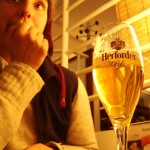

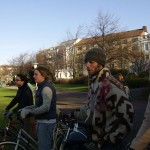

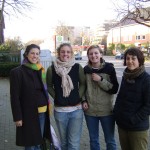

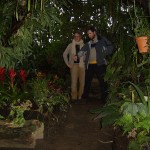
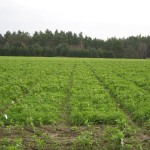
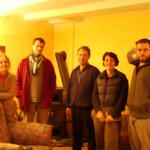
Leave a Reply